Newsletter Signup
Stay up to date on all the latest news from Boston.com
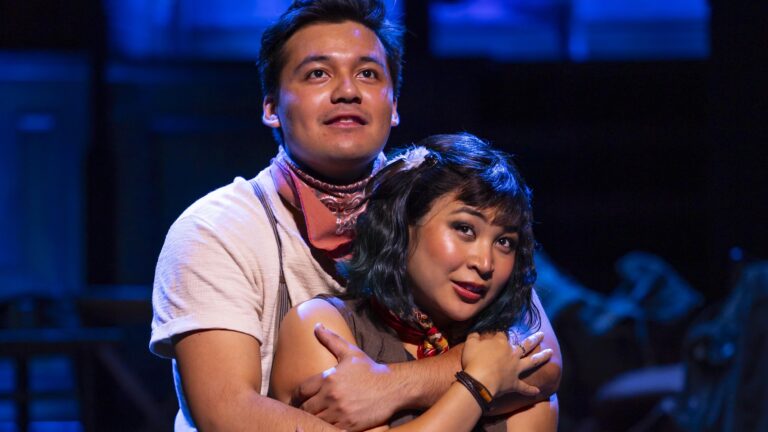
Anaïs Mitchell’s road to Broadway started somewhere around Virginia.
She thinks.
“In my memory, I’m on Interstate 81. Is that Virginia?” Mitchell asks me with a laugh. (Looking at a map, it could be.)
Either way, “it was a long drive up the East Coast” in 2005. The then-24-year-old Vermonter/recent Middlebury College grad was hungry to make it as a singer/songwriter and driving to her next gig, when these lyrics popped into her head:
Wait for me, I’m coming / In my garters and pearls / With what melody did you barter me / From the wicked underworld?
“I was like: This sounds like Orpheus and Eurydice,” Mitchell, now 43, says in our recent phone interview.
Soon, “Hadestown” was a scrappy DIY Vermont-based production. By 2010, it was a “folk-opera” studio album, featuring Ani DiFranco, Bon Iver’s Justin Vernon, and more. By 2019, “Hadestown” — intertwining two mythic tales, Orpheus and Eurydice, and Hades and his wife Persephone — was a bonafide Broadway hit, with music, lyrics, and book by Anaïs Mitchell; developed with and directed by Rachel Chavkin. It scooped up eight Tonys, and the 2020 Grammy for Best Musical Theater Album.
This week, Mitchell is bringing it all back home: A tour of “Hadestown” runs at Boston’s Boch Center Wang Theatre now through April 28.
Mitchell has essentially grown up along with her brainchild. Gone from a 20-something gigging at Boston T stops to landing on the TIME 100: Most Influential People in the World 2020.
With husband Noah Hahn and two kids, Mitchell has moved back to the Vermont family farm where she grew up, splitting her time between the “family compound” near Middlebury and her “New York spot.”
I called Mitchell to talk “Hadestown,” its Boston roots, and finding the sculpture in the stone — she also remembered a long-forgotten part of its origin story, and revealed she has a new play in the works.
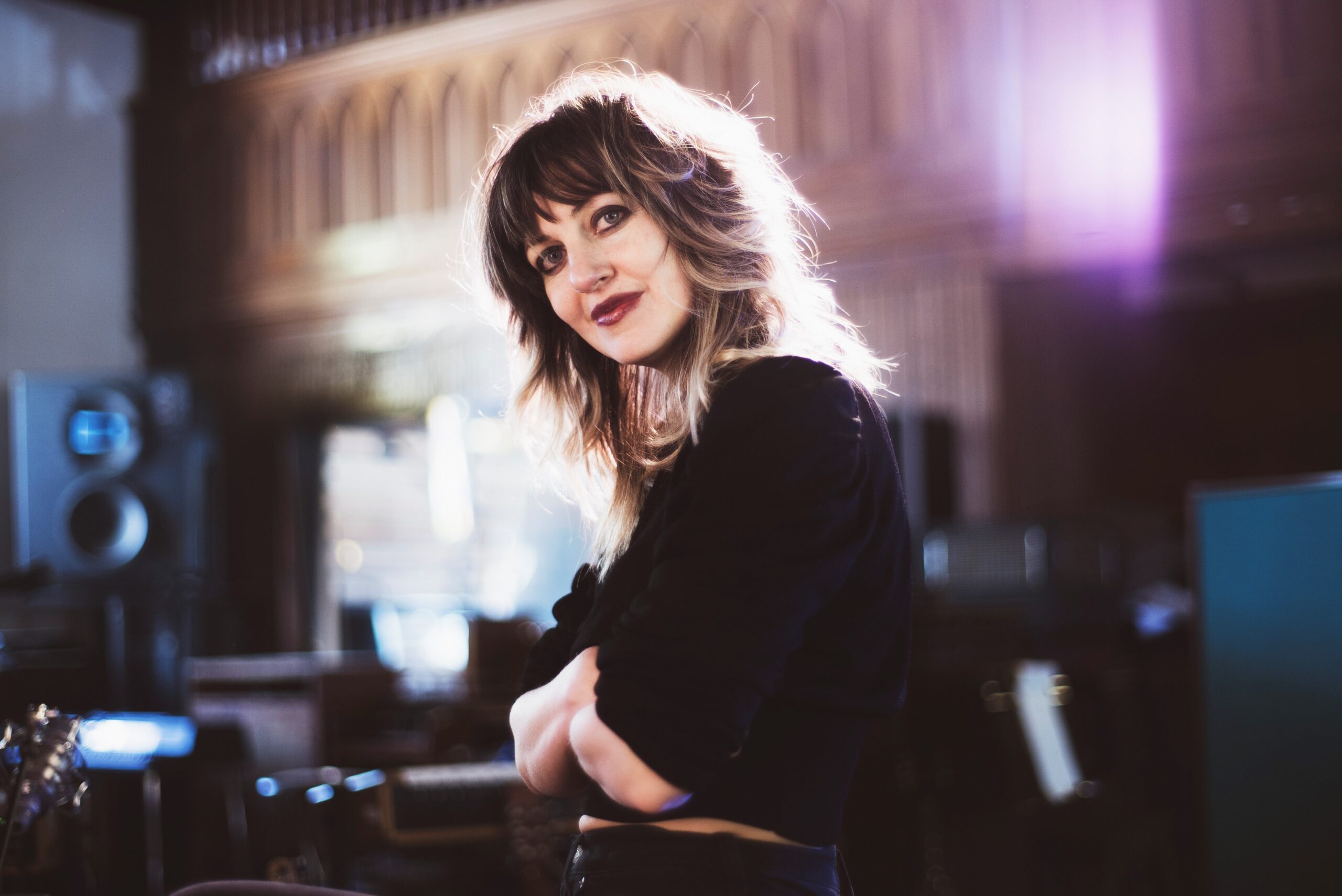
Anaïs Mitchell: I’m very excited. “Hadestown” has a deep history in Boston. In 2007, we’d created this DIY, early-Vermont version of “Hadestown.” We actually drove down in a school bus and put it on at the Somerville Theatre.
When the studio record came out in 2010, I was trying to figure out how to tour with it. I didn’t really know how. I did some shows with Michael Chorney, one of my orchestrators, and his band, but it was just me singing every song. [laughs]
When we decided to do a show in Boston, I thought: “I have so many friends there, I wonder if I could get them to sing the roles.” There’s such a strong music community in Boston — artists who show up for each other. So we did that at Club Passim in 2010. There were more people on stage than in the audience. [laughs]
But it blew things wide open. We went on to recreate that show all over. It was because of Boston that it felt possible.
The only line in the show now is: “Wait for me, I’m coming.” But those other lines about the garter — which is a wedding thing — and the underworld, that’s what led me to the story. Oh, yeah! I also kind of wrote it for my guy — my man I married. Because I had to do all this running around as a songwriter — I was young, ambitious; I wanted to get out in the world. But I was saying to him: “Wait for me. I’m going to come back and marry you.” That’s so funny. I just thought of that now.
Yes. In 2006.
I had the D’Aulaires Book of Greek Myths when I was a kid. That myth always spoke to me. I can picture the illustration.
A lot of musicians are excited by the story of Orpheus — he’s this musicians’ hero: An artist who believes that he could make something beautiful enough to change the rules of the world. I certainly felt that when I started writing this. I was in my early 20s, right out of college, very idealistic. It’s a coming-of-age story, where idealism comes up against the real world.
I applied for a grant. I made up some bulls— about what I wanted to do.
[laughs] I thought, “I’m never gonna get this grant.” Then I got it. I was like, “Oh, my God, I actually have to write this thing.”
So I roped in some collaborators. Michael Chorney, and his band at the time — which is essentially the instrumentation of the band that survives today. Then there was an early director, Ben Matchstick, who came out of the Bread & Puppet world. I put tickets on sale for this thing before it was even written. I was just that age.
[laughs] I was like: I’m doing this. Then I had to rise to the occasion, basically. Everyone in the cast and band were friends from Vermont. We put on that DIY-version of the show for a couple of years in Vermont.
That first version was more abstract, but there was something that worked. Even though a lot of people were like: “This is cool, but what is happening?”
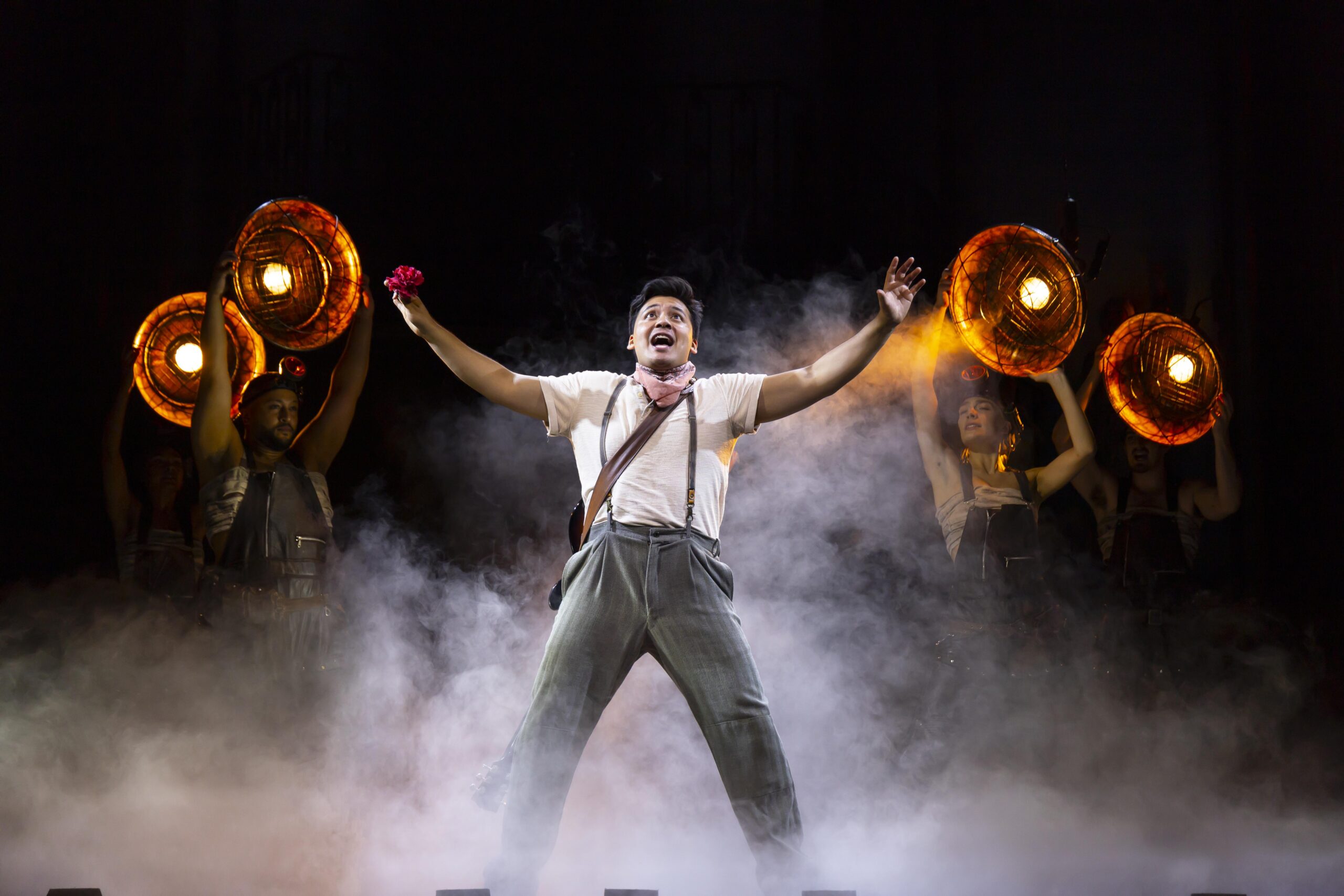
Then I wanted to make a record. I was working with Righteous Babe, Ani DiFranco’s label. She agreed to sing Persephone — and Ani DiFranco is now playing Persephone on Broadway, which is just extremely full-circle for me.
Years went by where I was trying to figure out how to develop it further. It took moving to New York, a bunch of false starts, seeing a bunch of theater, meeting Mara Isaacs, Dale Franzen, director Rachel Chavkin — before we finally got to Broadway in 2019. It was an epic journey.
This whole process has felt like grad school. A crash-course: What is drama? What’s dramatic storytelling versus musical storytelling?
I love narrative songs. I love ballads, raconteur songwriters, Townes Van Zandt-type stuff — but there’s a whole other level of drama I had to learn, which is that the story has to unfold in real-time in front of your eyes, not simply: “Once upon a time, this.” It’s characters having realizations, and making decisions that lead them on a path.
The narration of Hermes took a long time to figure out. You have to choose the right words. It has to feel like someone might really say it — but also, rhyme. [laughs] So that was very slow.
Yeah. I remember Rachel Chavkin wanted to look at Preservation Hall in New Orleans. New Orleans has always felt like a touchstone for the piece, partially because of the trombone, the sound of the arrangements. There’s something about New Orleans as a mythic city living on the edge of the water. The reality of industrial excess leading to climate catastrophe is played out on the stage of New Orleans.
The play also takes inspiration from the Depression era — the Dust Bowl where industrial farming practices led to this natural disaster. That felt like a small metaphor for what’s happening to the whole world right now, which is climate change and chaos based on human activity.
“The Wall” was in the very first version of the show. And yeah, the political aspects of the story were always important. The myth is inherently political. Hadestown is an industrial, corporate, bureaucratic space. I’m not the first person to do that kind of reimagining of the underworld.
There’s this tragedy inherent in that Orpheus can see the way the world could be — he’s got this beautiful vision — but by the end of the story, it’s as if he’s seen too much of how the world is.
That happens: Young people come into the world like: “This is wrong. Why not fix this?” Then we get older, we get mortgages, and we get children, we get jaded. We no longer see that stuff. And it’s been such a journey for me to have written this over such a long period of time, because I’ve been the idealist, and I’ve been the jaded one.
I’ve learned so much from the writing and rewriting and the actors — but I think, for all of us who ever worked on this, there’s that feeling of: It already exists. Maybe it’s because it’s an ancient myth. But you know that quote about the sculpture inside the stone?
The sculpture is already in the stone. You’re just chipping away. There’s a way in which all of the different iterations — if you’ve ever seen a sculpture that’s halfway chiseled, that’s what it was like.
It’s extraordinary. As much time as I know that I gave to it — because it was a huge part of my life — it also doesn’t feel like mine. It’s like a child: I know I was pregnant with you; I remember it — but also, where did you come from?
When we were just about to open on Broadway, I was furiously rewriting, not sleeping. It was stressful. So I went for a jog. It was before dawn. There were kids outside the theater, waiting to get rush-tickets. Some were dressed up as our characters. I realized: I have no idea what the relationship of these kids is to this show. It’s not for me to say.
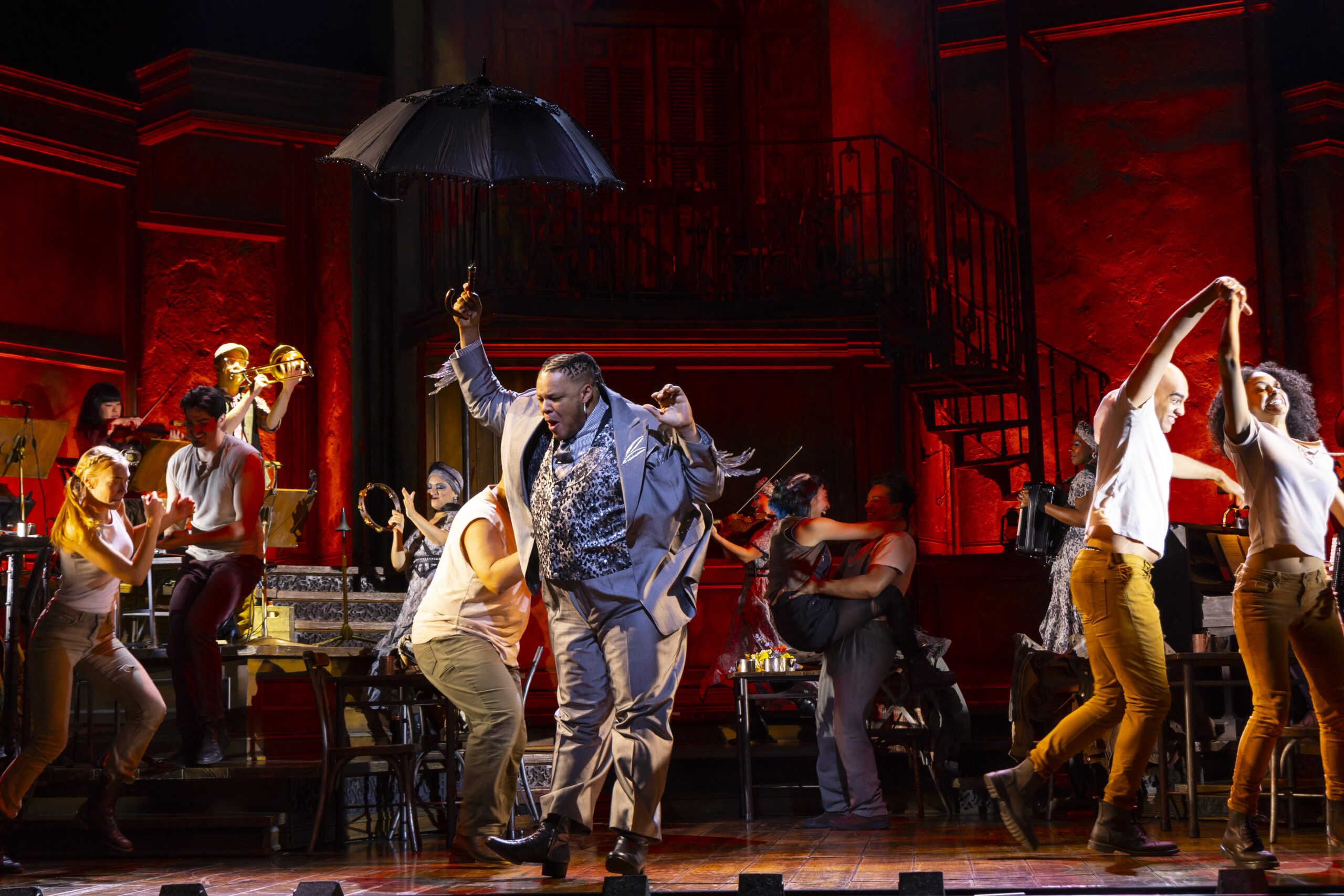
I felt like a deer in the headlights. I almost didn’t believe the Tonys were real until I was at them. I was just so proud. To see Rachel win for Best Director, and for Andre [De Shields] to win his first Tony at age 73. It was an out-of-body experience.
Totally. [laughs] It was great. He walked with me from the stage to backstage. So I took a walk with David Byrne.
Right now, Bonny Light Horseman is my real outlet as a performer. I’m also trying to write other stuff.
I’m trying to write a play with music right now. Which I’m very excited about. But also it feels like I have to get another graduate degree, because I never studied playwriting.
Um, I think I shouldn’t say too much, just as a superstition. You don’t want to spill the sap before you make it into maple syrup.
I would love that. There was a lot of interest right after we went to Broadway. But it didn’t feel right. I would love, at the moment when it’s right, that it’s its own animal, and doesn’t feel like it’s trying to recreate what’s happening on stage. So I’m enjoying letting time go by.
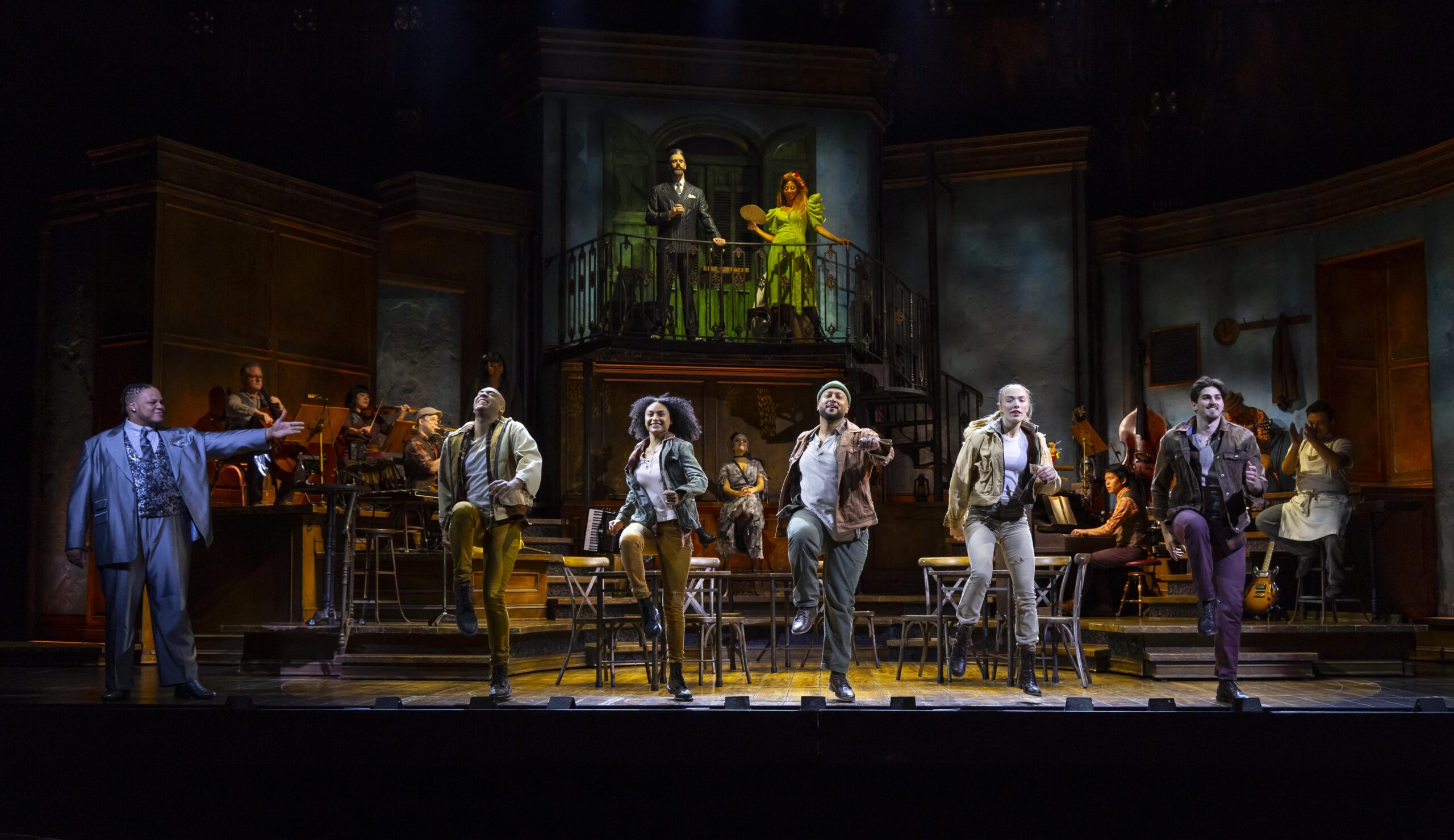
Interview has been edited for length and clarity.
Lauren Daley is a freelance writer. She can be reached at [email protected]. She tweets @laurendaley1, and Instagrams at @laurendaley1.
Stay up to date on all the latest news from Boston.com

Stay up to date with everything Boston. Receive the latest news and breaking updates, straight from our newsroom to your inbox.
Conversation
This discussion has ended. Please join elsewhere on Boston.com